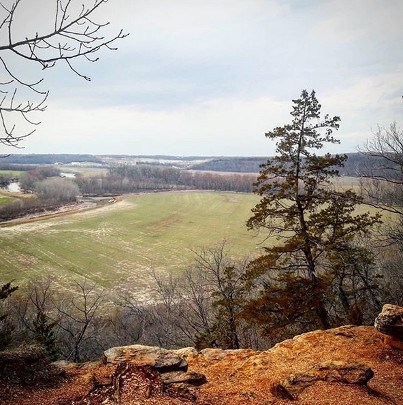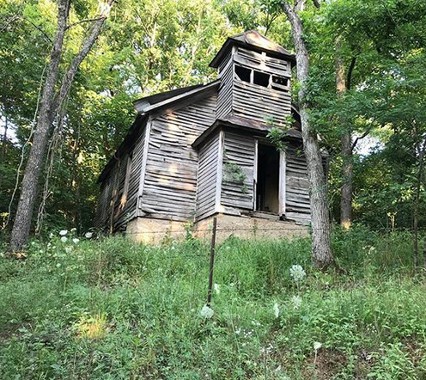Missouri has been inhabited for at least 12,000 years and artifacts from the state's previous inhabitants are frequently discovered by treasure hunters. These finds range from items belonging to its French and Spanish rulers to mining and Civil War relics. Some metal detector fanatics have even gone in search of buried treasure in the Show-Me State.
Laws
Missouri is governed by the Archaeological Resources Protection Act. Under the ARPA, treasure hunters are forbidden from extracting a man-made object from public land if it's more than 100 years in age.
Many pivotal battles of the Civil War were fought in Missouri. But you need to remember that metal detecting on Civil War battlefields is forbidden. The good news is that much of the land Civil War soldiers crossed over while traveling to battle now exists as private property. If you can convince a Missouri landowner to let you use your metal detector on their property, then you'll have a real shot at finding buttons, belt buckles, and other items dropped by soldiers in transit.
State Parks
Metal detecting is permitted in 12 state parks across Missouri. These parks include Cuivre River State Park, Wakonda State Park, and Stockton State Park. You are expected to have an active permit and to keep your activity to each park's designated metal detecting areas. More information on Missouri state parks can be found here.

Best Metal Detecting Equipment
| Product | ||
|---|---|---|
| Metal Detector |  |
|
| Edge Digger |  |
|
| Pin-Pointer |  |
|
| Knee Pads |  |
Buried Treasure
Rumors of buried treasure in Missouri first began circulating during the Civil War. At this time, it was common practice for soldiers and their supporters to bury their valuables.
Colonel Porter was a supporter of the Confederacy during the Civil War. When he found himself fleeing from a band of Union soldiers, he buried his entire $30,000 fortune somewhere near the village of Lanton in Howell County. His attempts to keep his money out of Union hands obviously proved effective because it remains hidden to this day.
The notorious outlaw Jessie James may also have buried treasure in his native state of Missouri. It's said that James buried $100,000 in gold coins and bullion in Missouri prior to his 1882 death. The exact location of the bounty is unknown. However, legend places it somewhere in the Des Arc Mountains.
Ghost Towns
There are ghost towns scattered throughout Missouri. Their remains offer a fascinating insight into life in the 1800s and provide ample opportunity for treasure hunting.
Far West
In the early 1800s, the Church of Jesus Christ of Latter-day Saints (LDS) was in its infancy. Plagued by controversy, church founder Joseph Smith was forced to move from state to state. In 1838, Smith and his followers (nicknamed 'Mormons') arrived in Missouri.
The LDS headquarters was established in the Missouri town of Far West. For a time, the Mormons lived peacefully and the population of Far West expanded to over 4,000 people. Smith even began teaching that the Biblical Garden of Eden had been located in Jackson County. This, along with other teachings contradicting Christian doctrine, earned the ire of the Governor of Missouri. Consequently, Smith and his followers were forced to flee Far West. Today, the town is a shadow of its former self. LDS tourists and treasure hunters often visit the town's remains.
Pink Hill
Pink Hill was the site of one of Missouri's greatest Civil War casualties. The town of Pink Hill was named for its surrounding hill, which bloomed breathtaking pink flowers. It was tragically burned to the ground during the war. Many of its residents perished, while those who survived were forced to flee to neighboring towns. A small post office managed to survive the blaze and actually remained in operation up to 1902. Today, all that's left of Pink Hill are the charred foundations of its homes and buildings.
Jordan
In the 19th century, a number of towns named "Jordan" sprung up across Missouri. When it comes to metal detecting and treasure hunting, the Jordan of Hickory County is the most notable. Much of the town's buildings came tumbling down years ago. However, items left behind by former inhabitants can still be found in their rubble. The town's church remains standing and is a popular spot among treasure hunters and theologians. There's even something for paranormal investigators in Jordan. According to legend, the town's inactive silver mine is home to more than a few restless spirits.

Conclusion
Missouri boasts one of the most extensive histories of any American state. Having been inhabited for at least 12,000 years, it's home to all sorts of treasure. With a quality metal detector, even a novice treasure hunter has a shot at uncovering Civil War relics, rusted mining tools, and long-lost coins. With tales of ghosts making literal ghost towns throughout the state, metal detecting in Missouri can be a true adventure.
